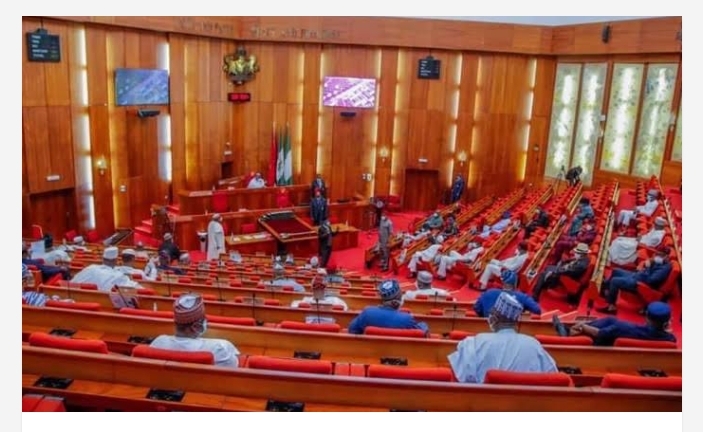Wednesday May 28, 2025|
In a significant move aimed at stabilizing the governance of Rivers State under emergency rule, the Nigerian Senate has approved the second reading of a ₦1.48 trillion emergency budget for the state.
This approval marks a critical step in funding administrative and developmental efforts in the oil-rich state, currently under direct federal control.
The bill, titled “An Act to Authorise the Issue from the Consolidated Revenue Fund of Rivers State”, was presented during Friday’s plenary by Senate Leader, Senator Opeyemi Bamidele.
It proposes a comprehensive spending plan to support ongoing government functions under the emergency administration led by Retired Vice Admiral Ibok-Ete Ibas.
The proposed expenditure is distributed as follows:
₦120.8 billion for debt servicing
₦287.3 billion for recurrent (non-debt) spending
₦1.07 trillion earmarked for capital projects
Senator Bamidele emphasized that the budget was crafted to facilitate inclusive growth and ensure the seamless continuation of governance amid the unusual political circumstances in the state.
“The aim is to stabilize the system, promote development, and address the urgent needs of Rivers people,” Bamidele told the Senate.
The bill has now been forwarded to the ad hoc committee on Rivers emergency rule, which is expected to scrutinize the proposal and report back in two weeks.
This budget proposal comes on the heels of a request by President Bola Tinubu, who last week wrote to both chambers of the National Assembly seeking swift approval for the emergency appropriation.
The president justified the move as a constitutional necessity, citing the suspension of the Rivers State executive and legislature following the imposition of emergency rule on March 18, 2025.
In a nationally televised address, President Tinubu invoked Section 305 of the 1999 Constitution, suspending Governor Siminalayi Fubara, Deputy Governor Ngozi Odu, and all members of the Rivers State House of Assembly for an initial six-month period.
He cited escalating political instability and the failure of state institutions to maintain order.
Following the declaration, Tinubu appointed Retired Vice Admiral Ibok-Ete Ibas as the sole administrator of the state, effectively placing Rivers under federal oversight.
The Senate subsequently established an 18-member committee, chaired by Senator Bamidele, to oversee governance in the state during this period.
The declaration of a state of emergency and the introduction of direct federal control over a state is a rare occurrence in Nigeria’s democratic history.
The last instance of such action occurred in May 2013, when former President Goodluck Jonathan imposed emergency rule in Borno, Yobe, and Adamawa states at the height of Boko Haram insurgency.
As Rivers navigates its political turbulence, all eyes are now on the ad hoc committee and the eventual full Senate approval of the appropriation bill — a decision that could shape the trajectory of governance and peace in the troubled state.
Related posts
Categories
- Advertisements (1)
- Agriculture (45)
- Breaking News (26)
- Business (598)
- Crime (989)
- Education (319)
- Entertainment (128)
- Features (13)
- For The Records (43)
- Foreign News (1,189)
- Health (219)
- Home News (332)
- Interview (9)
- Judiciary (349)
- Lifestyle (140)
- Local News (111)
- National News (1,448)
- Opinion (26)
- Politics (1,012)
- Religion (157)
- Science and Technology (125)
- Security (680)
- Sports (880)
- States' News (819)
- Transportation (330)
- Uncategorized (10)

